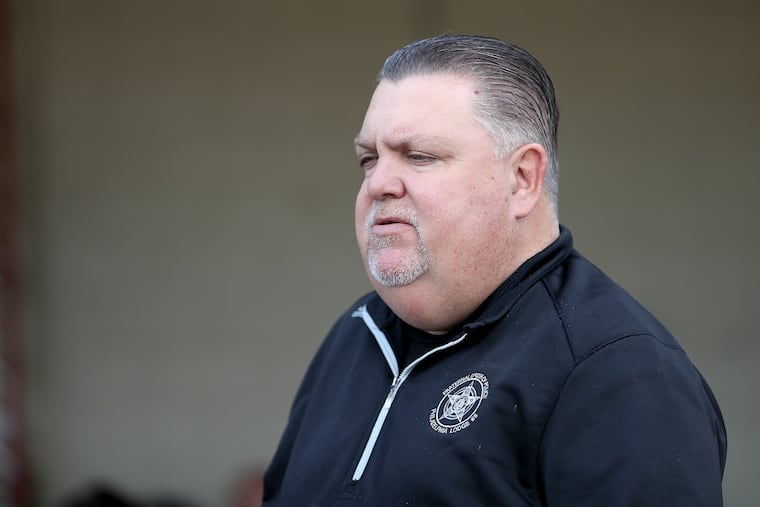Philly police union sues over a law that aims to curb traffic stops of Black drivers
The law, which was aimed at reducing traffic stops that disproportionately target Black drivers, is scheduled to take effect Thursday.

The union that represents Philadelphia police has sued the city, saying a new law that bans officers from pulling over drivers for minor traffic infractions violates state law and adversely affects public safety.
The suit, filed Tuesday in the Court of Common Pleas, asks a judge to deem the ordinance invalid on the basis that the city can’t preempt the existing Pennsylvania Vehicle Code. The city, Mayor Jim Kenney, and Police Commissioner Danielle Outlaw are named as defendants.
Known as the “Driving Equality Bill,” the law is slated to take effect next week and aims to curb police interactions by barring officers from pulling over drivers for traffic violations such as broken taillights and past-due inspections. Critics say law enforcement has long used these stops to target Black drivers at disproportionate rates, and some departments have encouraged them as an alternative to pedestrian stops as a means of seizing illegal guns or drugs.
The ordinance classifies a handful of low-level traffic infractions, like bumper issues and outdated registrations, as “secondary,” meaning they can’t be the sole reason a driver is pulled over. It was accompanied by an executive order requiring the Police Department expand its record-keeping of vehicle stops and publish data about them.
Philadelphia was the first major city to enact such a ban. The legislation passed City Council with a vote of 14-2 in October.
» READ MORE: With Driving Equality bill on the books, a pilot program takes aim at police stops of pedestrians | Opinion
John McNesby, president of the Fraternal Order of Police Lodge 5, which represents about 6,100 officers, said the legislation improperly attempts to supersede state law and, in the process, “makes the city less safe.” He also rejected the notion that officers target Black drivers while executing traffic stops.
“We don’t go out and say, ‘Oh, let’s go stop seven Black drivers today, or seven Asian drivers, or seven white drivers,’” he said. “We go out there to stop illegal cars. That’s what we’re trained to do.”
City spokesperson Joy Huertas said that the law “does not jeopardize public safety” and that the FOP “distorts the text and purpose” of the legislation. She said the administration doesn’t expect the lawsuit to affect the Police Department’s implementation of the new law.
The bill was authored by at-large Councilmember Isaiah Thomas, who spoke frequently about his own experience as a Black man being pulled over by police. He and other members have asserted the bill is legally sound, saying it doesn’t change the violations listed under state law but reclassifies how they are enforced in the city.
In a statement issued Wednesday, Thomas stood by the law and said he expects the courts will, too.
“We need all skeptics to listen to people’s lived experiences and understand that this is about the unequal treatment of Philadelphians when it comes to traffic stops,” he said.
The Defender Association, which helped Thomas’ office provide a legal framework for the legislation, examined some 300,000 vehicle stops in Philadelphia and believes the new law could eliminate a significant portion of them.
The number of traffic stops in Philadelphia plummeted in recent years. According to police statistics, there were, on average, about 330,000 vehicle stops annually between 2015 and 2019. That number was more than halved in 2020 and 2021 amid the pandemic, with police pulling over about 150,000 cars and trucks each of those two years.
The FOP has sued the city on multiple occasions over policies enacted in the name of police reform. In 2018, for example, the FOP claimed in a lawsuit that a list of tainted officers — maintained by the District Attorney’s Office to keep them from testifying in court — hurt the reputations of the officers listed. That suit was initially dismissed in 2019 by a Common Pleas Court judge but was revived in November by the state Commonwealth Court.
And in October, a city judge sided with the FOP and struck down a new law requiring a public hearing take place on proposed contracts between the union and the city. The union argued the ordinance interfered with its collective bargaining rights.
Staff writer Craig McCoy contributed to this article.